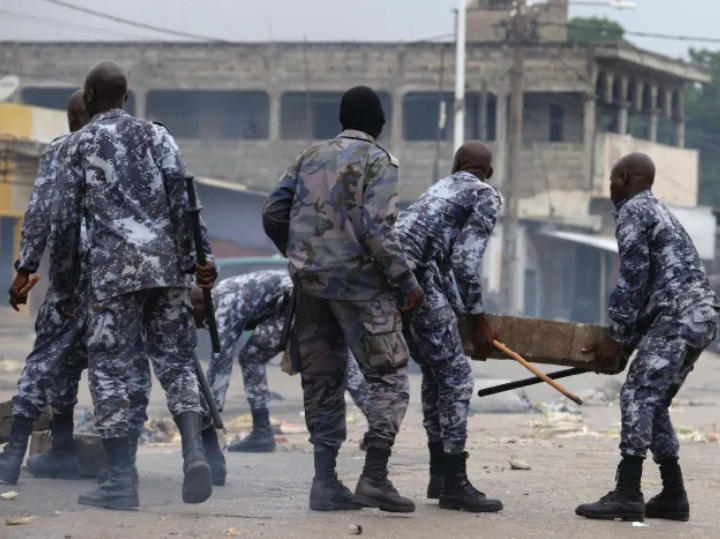A 17-year-old was held for five days with little water, a man was beaten unconscious by soldiers, and others were abducted during protests in Togo. Amnesty International condemned the excessive force used against demonstrators protesting constitutional changes that could extend President Gnassingbé’s rule. At least seven protesters died, some with bullet wounds, and several people were missing.
Togo: Amnesty International Calls for End to Use of Force Against Protesters


A 17-year-old was held in custody for five consecutive days, transferred between different police stations during this period. Throughout his detention, he was reportedly given only a single sachet of water per day, highlighting the harsh conditions faced by some detainees. In another incident, a man was attacked by a group of soldiers with such brutality that he lost consciousness, raising serious concerns about the level of violence employed by security forces. Furthermore, numerous men and women have been abducted by unidentified attackers, contributing to an atmosphere of fear and insecurity among the population.
These troubling accounts of alleged mistreatment and abuses by security personnel against protesters have been collected through detailed testimonies by Amnesty International. The human rights organization has publicly called on the government of Togo to cease what it describes as the “excessive and unnecessary” use of force against those peacefully expressing dissent. Amnesty’s statement, released on Thursday, emphasized the urgent need for accountability and respect for human rights during the ongoing unrest.
The capital city of Lomé has been the focal point of widespread protests, with citizens mobilizing most intensely between June 26 and June 28. However, demonstrations have taken place intermittently since early June, signaling deep-rooted dissatisfaction within the population. The primary cause of these protests is opposition to constitutional reforms proposed by the government. These changes, if enacted, could potentially allow President Faure Gnassingbé to extend his grip on power indefinitely. Gnassingbé, who assumed office in 2005, succeeded his father, who ruled the country for an extensive 38 years, making the presidency essentially a family legacy.
Amnesty International has documented 13 testimonies from individuals who witnessed or experienced unlawful actions by security forces and police during the protests. These testimonies collectively indicate a clear and disturbing pattern of mistreatment and abuse. The demonstrations between June 26 and 28 tragically resulted in the deaths of at least seven protesters. Among the deceased were several bodies recovered from the Bè lagoon area, including those of children, which further intensified public outrage. Reports suggest that some of these bodies showed signs of gunshot wounds, raising grave questions about the conduct of security personnel.
In addition to those confirmed dead, numerous eyewitnesses and community members have reported that at least six individuals remained missing as of July 2, following the violent crackdown on protests. The disappearances have compounded fears among families and human rights advocates, who continue to demand thorough investigations and justice for victims of repression. The ongoing situation in Togo remains highly volatile, with calls growing louder for the government to respect democratic principles and human rights.

 বাংলা
বাংলা  Spanish
Spanish  Arabic
Arabic  French
French  Chinese
Chinese 
